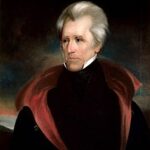The nullification crisis of 1832-1833 represented Andrew Jackson’s finest hour as president. South Carolina’s radical politicians declared federal tariffs “null and void” within their state boundaries. This unprecedented challenge threatened to tear apart the young American republic. 📊 Jackson faced a constitutional crisis that tested federal supremacy against states’ rights doctrine.
Jackson’s Dual Strategy During the Nullification Crisis
Jackson employed both diplomatic finesse and iron resolve. He privately negotiated with congressional leaders to reduce the controversial tariffs. Simultaneously, he publicly declared nullification treasonous and unconstitutional. His famous toast “Our Federal Union-it must be preserved” became a rallying cry for unionists nationwide.
The Force Bill and Constitutional Authority
Jackson requested congressional authorization to use military force if necessary. ⚠️ The Force Bill of 1833 granted him sweeping powers to collect federal revenues. This decisive action demonstrated that federal law superseded state legislation. Jackson’s willingness to deploy troops showed his commitment to preserving constitutional order.
Compromise and Resolution
Henry Clay’s compromise tariff provided South Carolina a face-saving exit. 💰 The gradual reduction of tariff rates satisfied southern economic concerns while maintaining federal authority. Jackson’s balanced approach achieved both immediate peace and long-term constitutional precedent.
Impact:
Jackson’s handling of the nullification crisis established crucial precedents for American federalism. His actions definitively settled the question of federal supremacy over state nullification attempts. 🔥 The crisis demonstrated that states could not unilaterally void federal laws without facing serious consequences.
Preventing Early Secession and Civil War
Jackson’s firm stance prevented South Carolina’s secession in 1833. This decisive action delayed disunion by nearly three decades. The precedent established during the nullification crisis strengthened Lincoln’s legal position during the actual secession crisis of 1860-1861. Jackson’s example showed future presidents how to balance firmness with diplomatic flexibility.
Long-term Constitutional Consequences
The resolution created lasting constitutional doctrine regarding federal-state relations. 🌍 Supreme Court cases for generations referenced Jackson’s nullification precedents. The crisis established that states must work within the constitutional system rather than nullifying federal law. This principle became fundamental to American jurisprudence and federal governance.
Political and Economic Stability
Jackson’s success preserved national economic unity during a critical growth period. 📊 His actions maintained tariff collection capabilities and federal revenue streams. The peaceful resolution encouraged foreign investment and trade relationships. International observers praised Jackson’s leadership during this constitutional emergency, enhancing America’s global reputation for stable governance.
